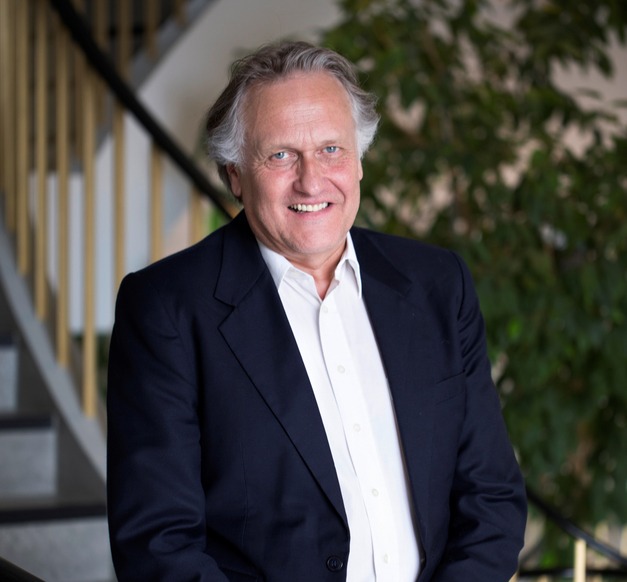Pálmi V. Jónsson, professor at the University of Iceland's Faculty of Medicine
The University of Iceland and Landspítali University Hospital benefit jointly from their prolific staff that have dedicated themselves to both care, cure and research into advancements in health care. This group includes Pálmi V. Jónsson, head of geriatrics a t the Landspítali University Hospital and professor at the University of Iceland, who was chosen honorary scientist at University Hospital in 2015 for his contribution to science.
"My maternal grandfather, whom I loved very much and reached the age of 103, proved to me the importance of geriatrics," says Pálmi who completed his speciality from Harvard University before returning to Iceland to practice and research. "Before I left I studied American epidemiological research that I could use, along with my connections once in Iceland to establish collaboration with the Icelandic Heart Association," says Pálmi who played a significant part in forming the AGES Reykjavík Study. This extensive study tackles the link between genetics, life styles and environment on how people age.
Pálmi V. Jónsson
"I hope that eventually the study will lead to individuals taking increased responsibility for their own health; improving the education of those working with the elderly; and that the level of quality of service and efficiency will be maximised."

Pálmi has also worked on genetics research with both the Icelandic deCODE genetics and as part of an international research team developing evaluation instruments for interRAI, an international collaborative effort to improve the quality of life of vulnerable persons. "The InterRAI technology makes the comprehensive evaluation of the elderly more efficient, which is vital as people encounter various age related changes, diseases and increased number of drugs, as well as loss of motor skills. The technology is used to map the needs of the elderly and facilitates the order of priorities, analyses quality indicators and the level of care," explains Pálmi.
The studies with the Icelandic Heart Association and deCODE have had many interesting results. "Almost all genes found this century connected to the pathophysiology of Alzheimer's disease have been discovered in Iceland, i.e. as an important factor of the AGES study, or in research at the Icelandic deCODE genetics. The databases from the InterRAI study also support the above mentioned research in genetics, and add to the varied measurements of the AGES-study data," he points out.
The AGES Reykjavík Study has had various other effects on the scientific community. "We procured a great deal of funding for research and formed important connections with international research scientists and many of our best Icelandic researchers in other fields are currently engaged in geriatrics," he adds. "The knowledge created in the AGES study can be used in preventive measures, as lifestyle and environment play a big part in how we age; individuals can thus take informed control of their own lives. InterRAI measures in turn provide the opportunity to co-ordinate and improve services for the elderly in society and in hospitals," says Pálmi on his and his collueagues' research.
He says curiosity is his main motive for research when asked. "But I hope that eventually the study will lead to individuals taking increased responsibility for their own health; improving the education of those working with the elderly; and that the level of quality of service and efficiency will be maximised," says Pálmi.


